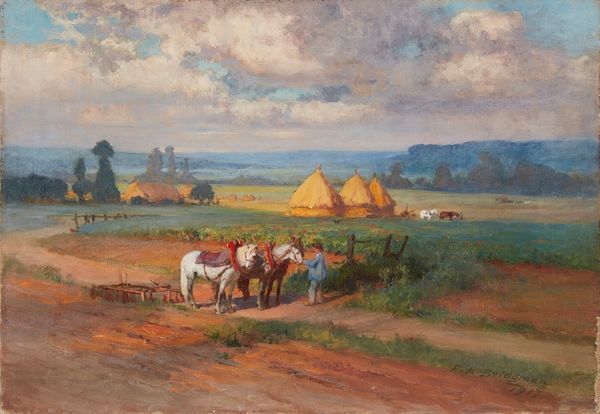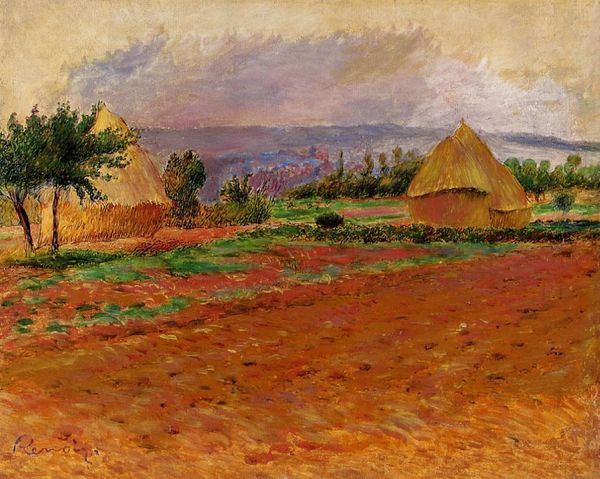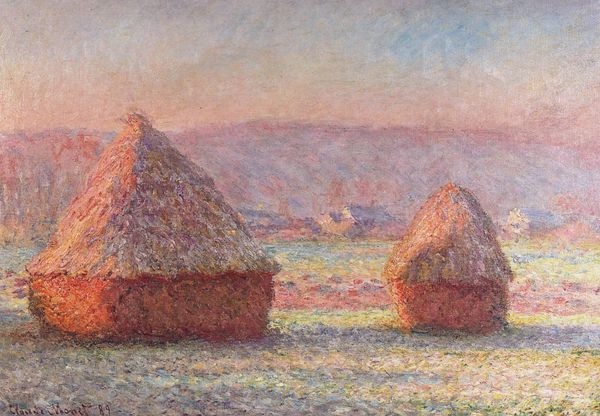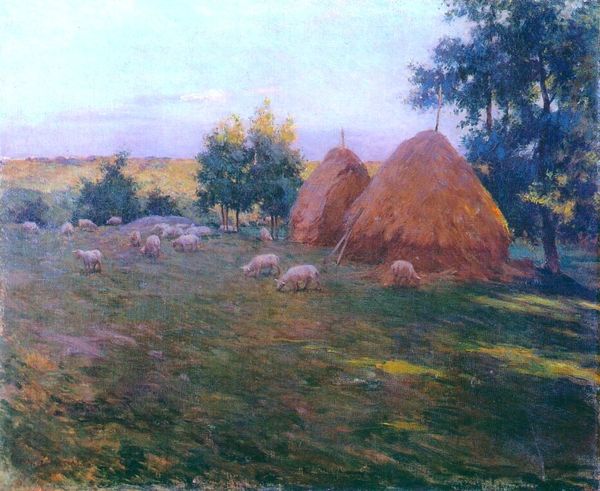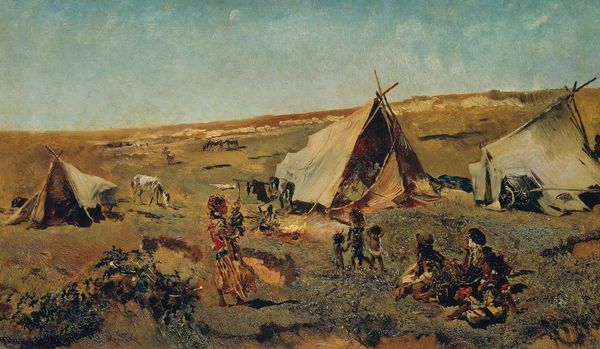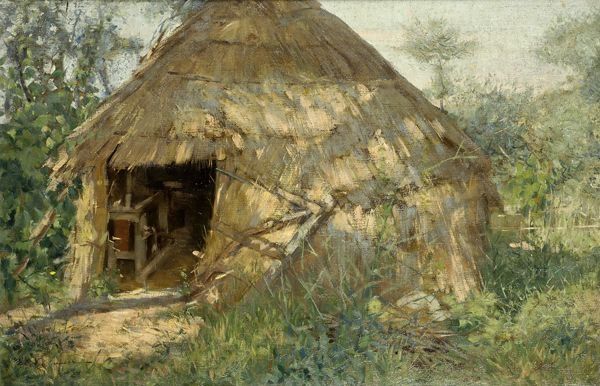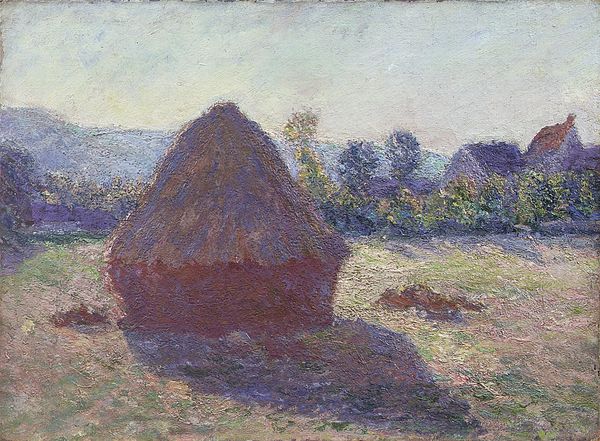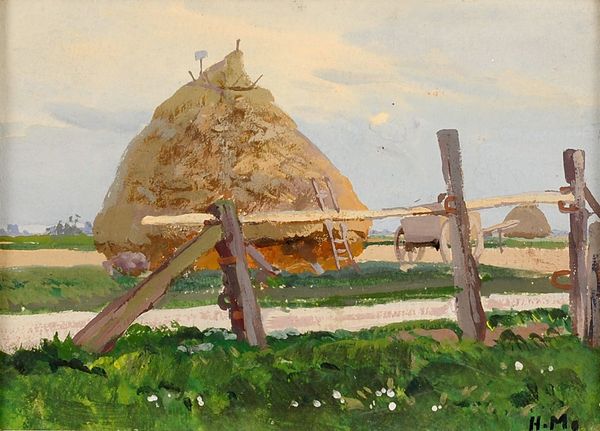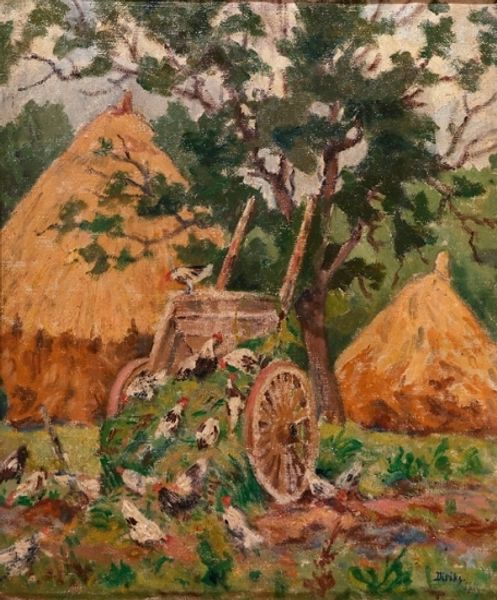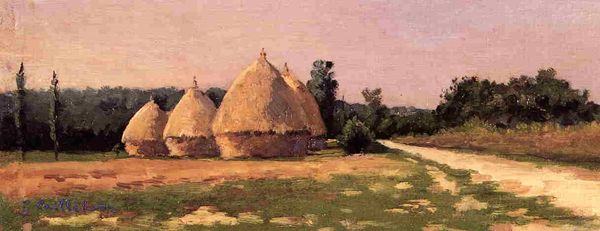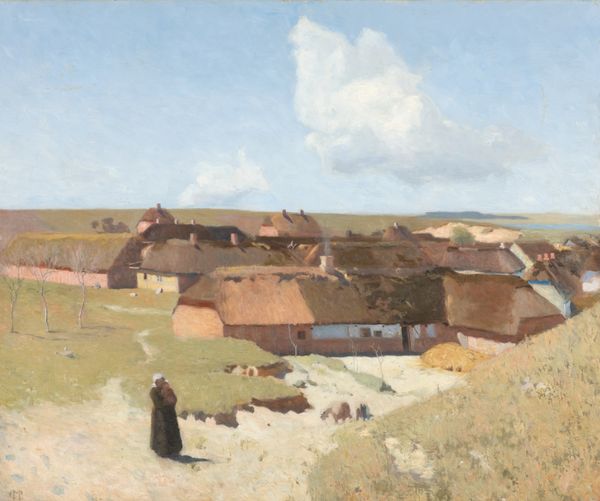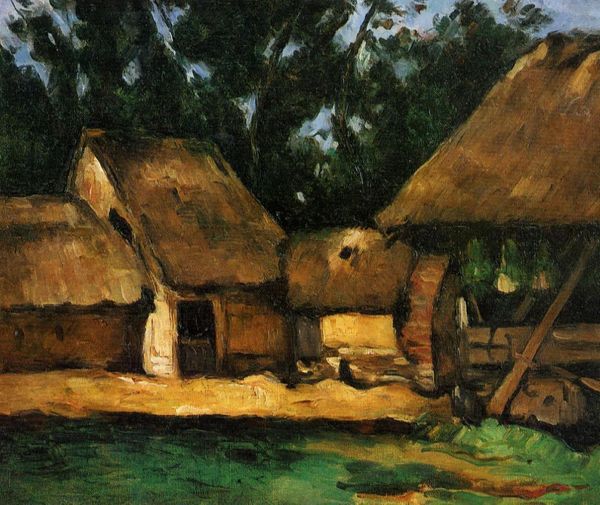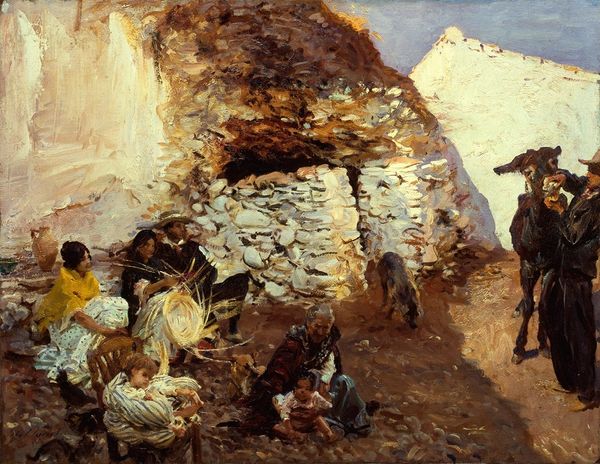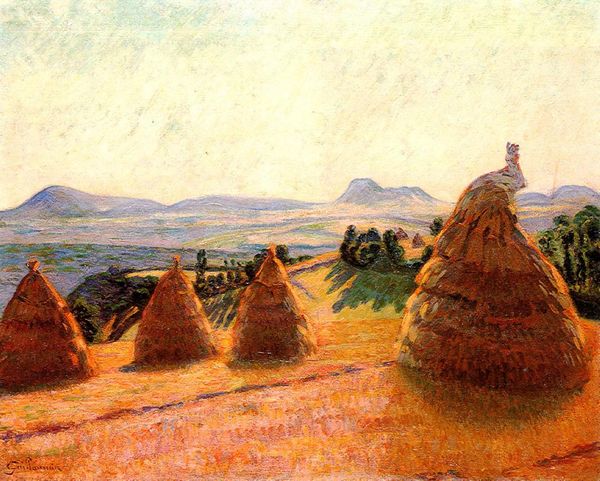
painting, oil-paint
#
painting
#
impressionism
#
oil-paint
#
landscape
#
oil painting
#
naive art
#
painting painterly
#
genre-painting
#
modernism
#
realism
Copyright: Public domain
Curator: Hugo Mühlig's oil painting, aptly titled "Potato Harvest," provides a glimpse into agrarian life. What's your immediate sense of this scene? Editor: My first thought? Dust. That rich, earthy palette, combined with the hazy atmosphere, really evokes the grit and sheer effort of harvesting. And a certain…monotony. But a beautiful one, strangely. Curator: Precisely. Note the strong horizontal composition, segmented by the furrows in the field. This division anchors the figures and structures, those two haystacks standing almost as monuments to industry. The lack of precise detail throughout suggests an impressionistic influence. Editor: Those haystacks *are* massive! Almost dwarfing the figures. But that soft focus, you're right, keeps it from feeling oppressive. There's also this light smoke rising—suggesting perhaps a moment of rest, or preparation of a midday meal? That adds a lovely textural element to what would otherwise be simply flat earth. Curator: The smoke, as you observe, serves as a pictorial device, drawing the eye toward the central grouping of figures and reinforcing the depth of field. Observe how Mühlig juxtaposes the warm, ochre tones of the earth with the cooler grays of the sky, achieving a balanced, if somewhat subdued, chromatic harmony. Editor: Harmony is a good word. Despite the likely back-breaking work happening, it feels… peaceful. Look at the stooped figures in the field. The way their shapes almost echo each other, moving with a slow, rhythmic pulse. Is it idealizing this labor? Perhaps. But it captures a specific mood so vividly. Curator: We might consider how this work contributes to the genre of realist paintings of peasant life that were prominent throughout the late 19th century, even if the technique tends toward impressionism and hints toward a modernist, naïve touch. These images often had complex social and political connotations tied to representations of the rural working class. Editor: All that weight in something so ostensibly simple. But it’s also why I keep coming back. It's both a moment frozen in time, and a symbol, even, for human toil itself. Curator: A fitting reflection indeed. Mühlig has achieved a powerful distillation of labor and landscape through this combination of formal construction and affective presence. Editor: Agreed. "Potato Harvest," a little unassuming, but once you spend time with it, unexpectedly profound.
Comments
No comments
Be the first to comment and join the conversation on the ultimate creative platform.
